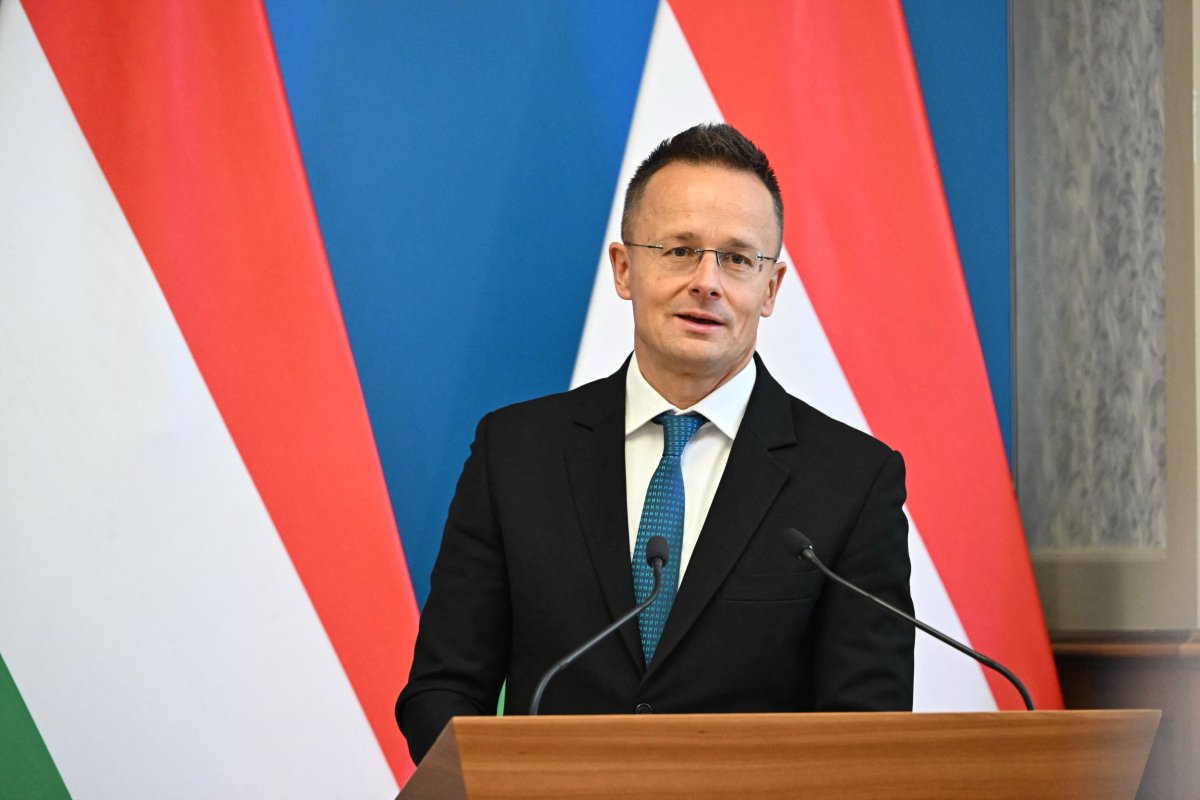Hungarian Foreign Minister Péter Szijjártó expresses strong support for U.S. President Donald Trump, building on a positive relationship established during Trump’s initial presidency. Szijjártó highlights Hungary as a nation that embraced similar policies even “before Trump,” suggesting a growing alignment on international policy and overall vision.
Background: Hungary’s Political Trajectory and Orbán’s Leadership
Donald Trump’s election win in 2016 resonated strongly with Hungary. This nation is used to challenging political norms. Prime Minister Viktor Orbán, often described as the “strongman of Europe,” previously served as Prime Minister (1998-2002). After a period in opposition where he disputed the results of the election, Viktor Orbán returned to power in 2010, securing a landslide victory. The mandate he received allowed him to implement a new constitutionFundamentally restructuring Hungary’s political system. The critics say that these reforms helped to ensure the continuation of his regime.
Orbán’s Fidesz-KDNP coalition has since won successive elections (2014, 2018, and 2022), prompting ongoing criticism from international observers. Hungary, despite this criticism, has continued to pursue its agenda. It even held the presidency of the Council of the European Union during the second half of 2024. During this period, Orbán demonstrated a strong commitment to seeking diplomatic solutions, notably engaging with both Ukrainian President Volodymyr Zelensky and Russian President Vladimir Putin to explore avenues for resolving the Ukraine conflict.
Right-leaning political parties have made significant gains in Europe after a year marked by major global shifts. Hungary is anticipating a better global environment with Donald Trump as the President of United States.

Key Insights from the Interview with Péter Szijjártó
Should Europe be playing a bigger role in the ongoing peace talks with Ukraine?
A: Szijjártó questions the absence of European leaders in the peace negotiations, arguing that their policies have exacerbated the conflict. Szijjarto believes direct talks between Russia and the U.S. are crucial to ending the conflict. He is optimistic about discussions between President Trump, President Putin and Secretary Marco Rubio as well as meetings between Minister Sergey Lavrov.
Are the U.S. policies becoming more Christian?
A: Szijjártó affirms this trend, pointing to President Trump’s pro-family, pro-peace, anti-migration, and anti-gender stance. Hungary, he says, shares the same core values as America and is criticized by some for its policies that support them. Hungary’s constitution states that family is between man and woman. President Trump feels vindicated for what he believes to be common sense, as it fights against “global dictatorships of the international liberal mainstream.”
Q: What are your thoughts on the concern that advocating Christian values undermines separation of state and church?
A: Szijjártó disagrees, asserting that cooperation between state and church, with mutual respect for sovereignty, is beneficial. Szijjarto clarifies the fact that while church does not interfere with state affairs, it provides support to education, health care, cultural institutions, and social services. He highlights that the church does not interfere in state matters but provides valuable support for education, social services, healthcare and cultural institutions. importance of culture The nation’s defining identity.
A: Is it possible that a focus on Christian values could conflict with the multiculturalism of Europe given the increasing Muslim populations?
A: Szijjártó supports religious freedom but emphasizes that immigrants should respect the culture, laws, and way of life of their host country. He calls it unacceptable that Christian symbols are banned in Europe because of migration. Then there’s the Human Rights Watch organisation Warns against the growing discrimination in Central Europe
What are the successes and failures of Hungary’s EU Presidency?
A: Szijjártó equates Hungary’s actions during the presidency with President Trump’s policies and says they were “kind of Trump before Trump.” In his speech, he stresses the importance of EU expansion towards the Western Balkans. He also highlights the advances made by Montenegro & Albania. He also wanted to improve the competitiveness of the European Union, which he believed was declining.
Q. How would you evaluate the first month under Trump’s presidency
A: “A plus, no question.” Szijjártó commends Trump for curtailing the United States Agency for International Development (USAID). Szijjarto claims USAid had a negative influence on the region and world, because the agency was “used for interfering in domestic affairs of other countries… blackmailing, ruling, imposing policies, and influencing election results, and influencing democratic expressions of the people”. He says that the cutback creates a better place for patriot governments.

A: Do you have any concerns about the fact that cutting USAID would undermine programs beneficial to developing countries?
A: Szijjártó indicates that there’s a 90-day review period to refine which projects get assistance and to ensure the programs are not “serving [the] “The goal is to destabilize, interfere, and put pressure on the governments that are patriotic”.
Q: What can Trump take from Hungary?
A: Szijjártó acknowledges Hungary’s smaller size compared to the U.S., expressing humility. The improved relationship between the two countries under Trump is highlighted, as compared to the hostile relations of the former administration. In a bid to highlight the potential of a spectacular collaboration, Trump cites a large American R&D agreement in Hungary as well as a Voyager Technologies space research contract. He expresses his hope that the two countries will align on taxation issues, noting how the former administration ended a tax agreement due to Hungary’s opposition to a global minimum tax.
How does Hungary plan to deal with the inflation that is threatening Europe?
A: Szijjártó explains Hungary’s reliance on exports due to its landlocked location and lack of energy resources. Hungary prefers minimal trade barriers to encourage international commerce. He hopes Trump will remain a “deal maker”. Szijjártó criticizes European leaders for their paralysis in proposing mutually beneficial trade agreements with the U.S., attributing it to their past criticisms of Trump and their fear of his reaction.


